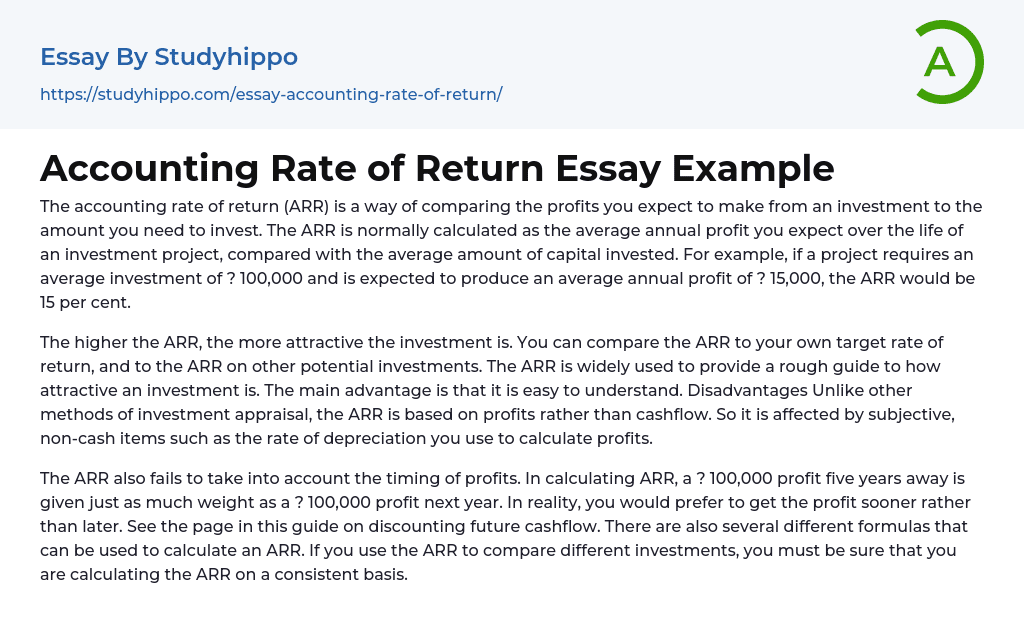The accounting rate of return (ARR) is a way of comparing the profits you expect to make from an investment to the amount you need to invest. The ARR is normally calculated as the average annual profit you expect over the life of an investment project, compared with the average amount of capital invested. For example, if a project requires an average investment of ? 100,000 and is expected to produce an average annual profit of ? 15,000, the ARR would be 15 per cent.
The higher the ARR, the more attractive the investment is. You can compare the ARR to your own target rate of return, and to the ARR on other potential investments. The ARR is widely used to provide a rough guide to how attractive an investment is. The main advantage is
...that it is easy to understand. Disadvantages Unlike other methods of investment appraisal, the ARR is based on profits rather than cashflow. So it is affected by subjective, non-cash items such as the rate of depreciation you use to calculate profits.
The ARR also fails to take into account the timing of profits. In calculating ARR, a ? 100,000 profit five years away is given just as much weight as a ? 100,000 profit next year. In reality, you would prefer to get the profit sooner rather than later. See the page in this guide on discounting future cashflow. There are also several different formulas that can be used to calculate an ARR. If you use the ARR to compare different investments, you must be sure that you are calculating the ARR on a consistent basis.
- Accounts Receivable essays
- Auditor's Report essays
- Balance Sheet essays
- Costs essays
- Financial Audit essays
- International Financial Reporting Standards essays
- Tax essays
- Accountability essays
- Cash essays
- Principal essays
- Management Accounting essays
- Internal Control essays
- Accounting Software essays
- Cash Flow essays
- Investing essays
- Asset essays
- Depreciation essays
- Discounted Cash Flow essays
- Foreign Direct Investment essays
- Funds essays
- Internal Rate Of Return essays
- Revenue essays
- Day Trading essays
- Futures Trading essays
- Capital market essays
- Million essays
- Payment essays
- Rate Of Return essays
- Funding essays
- Hedge Fund essays
- Accounting essays
- Andrew Carnegie essays
- Automation essays
- Business Cycle essays
- Business Intelligence essays
- Business Model essays
- Business Operations essays
- Business Software essays
- Cooperation essays
- Cooperative essays
- Corporate Social Responsibility essays
- Corporation essays
- Customer Relationship Management essays
- Family Business essays
- Franchising essays
- Harvard Business School essays
- Harvard university essays
- Human Resource Management essays
- Infrastructure essays
- Inventory essays




